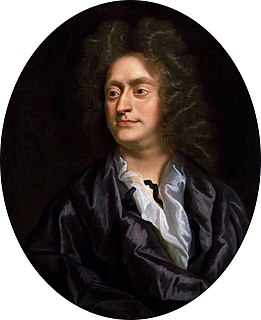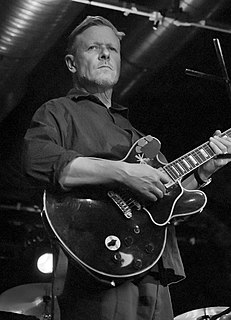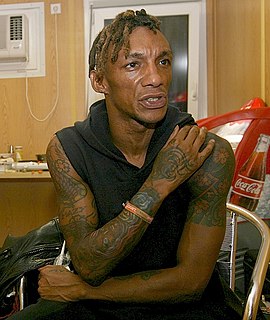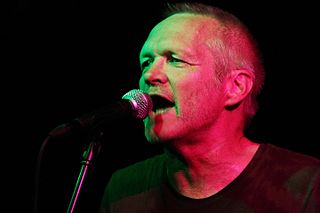A Quote by Gilbert Highet
Poetry is halfway between prose and music: it is sometimes like an intimate conversation, in words and phrases which need not be fully uttered, and sometimes like dancing and wordless music.
Related Quotes
There's no difference between lyrics and poetry. Words are words. The only difference is the people who are in academic positions and call themselves poets and have an academic stance. They've got something to lose if they say it's all poetry; if there's not music to it, and you have to wear a certain kind of checkered shirt or something like that. It's all the same. Lyrics are lyrics, poetry is poetry, lyrics are poetry, and poetry is lyrics. They are interchangeable to me.
Certainly for me prose has a dilatory capacity, insofar as I don't trust my abilities in prose. I imagine I could have done the same thing in poetry, but sometimes I feel more fluent in poetry than in prose, and as a consequence perhaps I might pass too quickly by a thing that I might, in prose, have struggled merely to articulate. That struggle creates space, and it seems to me a particular kind of space into which memory flows easily. I suspect I think better in poetry, however.
Every work is completely different. Sometimes the music is first, sometimes it's parallel, and sometimes the music is after. There's no rule. Music goes differently to your emotions. With music you can create different spaces and feelings easier than you can with the visual - maybe not easier, but in a way, it's more seductive.
Sometimes people can get lost within the crowd, but we have to remember that ballroom dancing is an intimate sport where people look into your story and not the other way around. It's so important to just stay focused as a couple and that you don't let your adrenaline get the best of you by dancing too fast to the music or whatever.
In the 1960s, people like Bob Dylan, his music and words were a threat to the society and mainstream of the time. It shook people alive, and directly and indirectly things changed. But, as I see it, the change is never through the music alone. It's also the circumstances around the music that will cause/create the effect. And sometimes it's just strictly accidental that a piece of music becomes a form of protest.






































